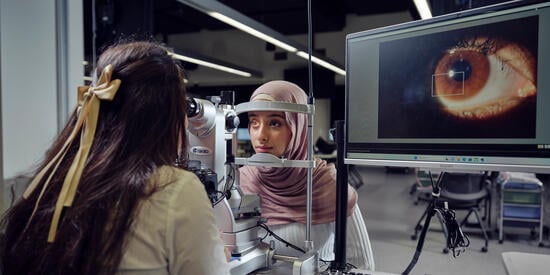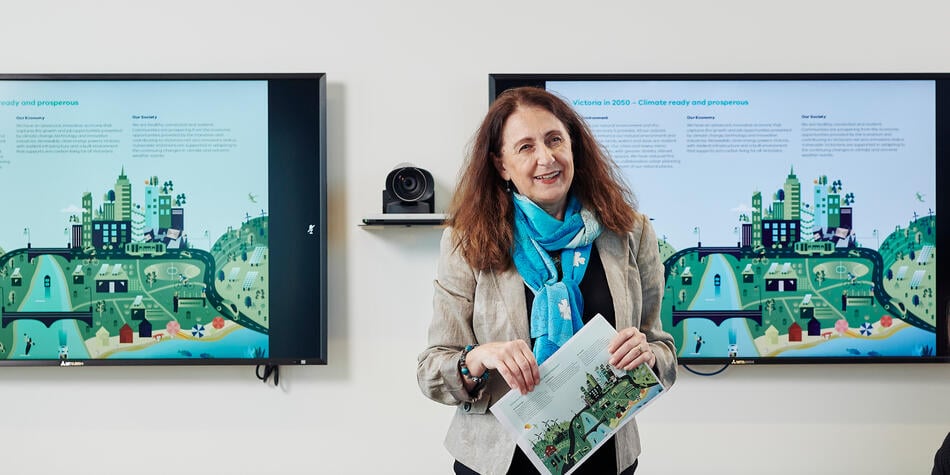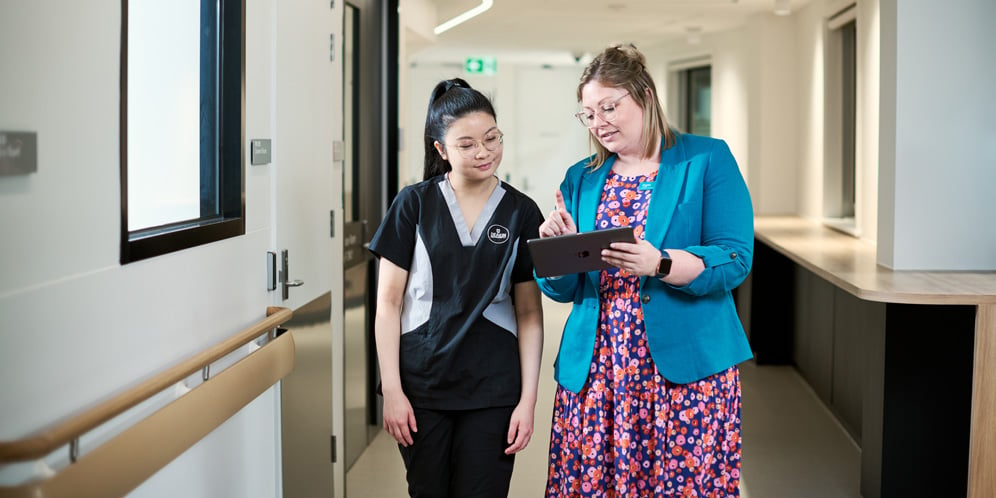Explore your study options
Study at the university ranked #43 worldwide for public health. With courses shaped by workforce needs, you’ll gain practical skills for your career and graduate ready to respond to current and emerging global health challenges.
Undergraduate
Undergraduate (your first degree)
A Deakin undergraduate course is the foundation of your future career, usually completed in two to four years. Duration varies based on degree type, enrolment pattern and any credit received from recognition of prior learning.
Postgraduate
Postgraduate (further study)
A postgraduate qualification can be undertaken by students who have already completed an undergraduate degree or possess significant, demonstrable work experience. Postgraduate courses include graduate certificates, graduate diplomas, masters and PhDs, as well as specialist programs for industry professionals.
Research
Higher Degrees by Research (supervised research)
Research degrees are research based master’s or PhD programs that focus on a single area of expertise. They provide students the opportunity to carry out highly specialised research under expert supervision.
Choose a public health degree that will get you work ready
Our public health courses will enable you to make a difference in the healthcare sector. As a graduate you’ll be equipped with specialist knowledge of pertinent topics such as disease control, epidemiology, health communication and environmental health.
Gain industry experience
Complete work-integrated learning and transfer your knowledge and skills to a practical setting. You'll unpack different case studies drawn from industry scenarios to help spark ideas for your own career.
Become an expert
Tailor your career path and become a leading voice in healthcare. Dive deeper into your interests by choosing electives from several areas of study when you study our Master of Public Health.
Respond to global issues
Explore the surveillance, investigation, prevention and control of public health events. You’ll learn how to detect and respond to disease outbreaks through analytical methods.
Take the next step to a brighter future
Explore our public health courses and find out more about life at Deakin. Get more inspiration for your future career in a major growth sector.
Download our study area guide
Study at Deakin and be rewarded with new skills that will give you an edge in the job market
Professional recognition
Our courses are recognised by several leading industry bodies, providing you with access to networking and professional development opportunities. Depending on your course and majors, you may be eligible for accreditation from the following bodies:
- Public Health Association of Australia
- International Union for Health Promotion and Education
- Australian Health Promotion Association.
Top professional roles in public health
Healthcare and social assistance is Australia’s largest and fastest-growing employment sector, with more than half a million jobs expected to be created by 2034.* Projections suggest strong growth across the following health roles:
- 294,500 new jobs for community and personal service workers
- 57,800 new jobs for social and welfare professionals
- 30,100 new jobs for health diagnostic and promotion professionals.
The skills and knowledge you gain in your degree can prepare you for a career at a community level, within government and global organisations such as the World Health Organisation or the United Nations Development Programme.
#43 worldwide for public health
Study with a global leader. Deakin is ranked #43 worldwide for public health teaching and research excellence. This highlights our course quality, cutting-edge facilities, leading academics and outstanding graduate outcomes.
My course has allowed me to fortify my academic foundations of public health and health care in general. The practicum experience at a reputable organisation has given me a foothold in the practical realm of public health. I believe I am extremely well prepared to achieve my career goals.
Kabir Kashyap
Master of Public Health
World-class teaching experiences
Learn from industry experts and be immersed in real-world case studies, preparing you for the realities faced by public health specialists.
Benefit from industry connections
Take advantage of Deakin's wide range of industry partners who can provide applied research opportunities and work placements. Our partners also input into our course content, ensuring what you learn is relevant to workforce needs.
Research with us
If you're a medical professional, health worker or clinician looking to boost your career prospects, drive positive change across health systems or develop your research skills, postgraduate study in public health could be for you.
Want to explore more?
If you're dreaming of an exciting and rewarding career in public health, we'll help get you there.
- Which health degree is right for you?
- Which postgraduate health course is for you?
- How to become an epidemiologist: careers in public health

Which health degree is right for you?
Want to study health but don’t know where to start? There are many options to consider when it comes to choosing which health degree is right for you.

Which postgraduate health course is for you?
Keen to take the next step in your health career and expand your skills with a masters degree? Learn which Deakin health course is right for you.

How to become an epidemiologist: careers in public health
As a public health epidemiologist you can be part of real-world discoveries and drive realistic, sustainable solutions to urgent public health concerns.
Rankings and footnotes
Deakin references data from a range of government, higher education and reputable media sources. For more information, visit our University rankings page.
*Jobs and Skills Australia, National Employment Projections, 2024 to 2034.
Contact us
Got a question about our public health courses? Our course advisers are available to speak to you about your study options and how we can help you further your career.
Domestic students
1800 693 888
Enquire online
International students
+61 3 9918 9188
Enquire online






















